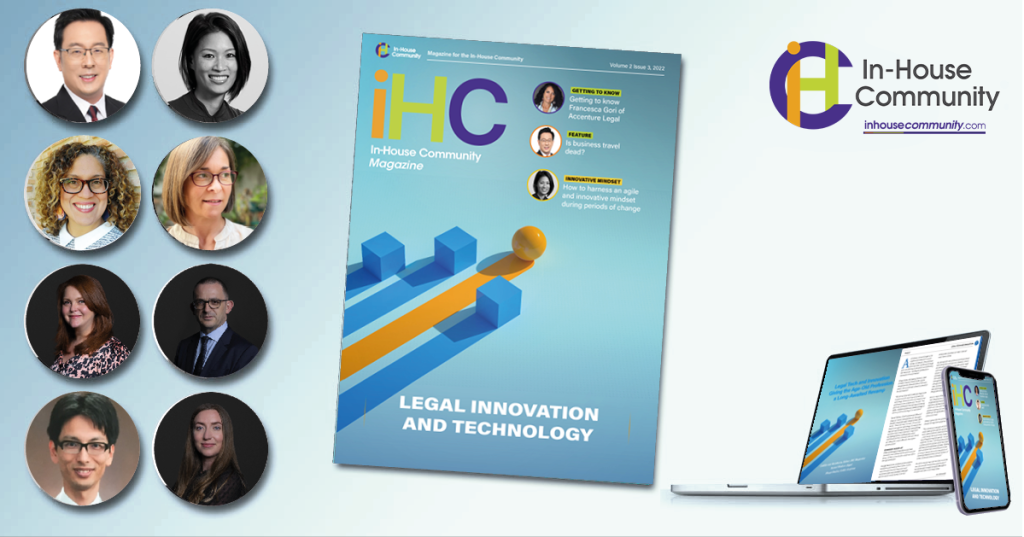
Whilst we all appreciate the importance of a productive and creative mindset, it can be challenging to resist the urge to default to old habits or conservative thinking in uncertain times. As we face questions about the global economy and consider the impact of major market disruptors, we wanted to look at how one can remain agile, effective and even opportunistic, both individually and as a team.
Stephanie Szeto, Head of Asia for Peerpoint, Allen & Overy’s flexible resourcing business, spoke to Sarah Millson, a senior learning and development consultant with Actualize Hong Kong, and Stacy Lopez, a certified professional career and transition coach and member of Peerpoint’s consultant management team, about some of these themes.
“The fight or flight part of the brain sometimes sees change as a perceived danger and we often pull from previous experiences when reacting in response to it.”
Stephanie: Change in the face of uncertainty can cause people and organizations to react with conservatism, caution and even anxiety. How do we develop an open and opportunistic mindset in the face of change?
Stacy: My career has taken a number of different turns and something that I have learned, and which was a real game-changer for me, is that “Everything is an opportunity”. When we are faced with change and discomfort, that is in fact how we grow. So, ask what the potential opportunity is, what are you meant to learn and how are you going to grow and move forward?
The fight or flight part of the brain sometimes sees change as a perceived danger and we often pull from previous experiences when reacting in response to it. If you can learn to just pause, acknowledge and explore why you’re feeling this way you can then try to shift into a more positive or constructive way of thinking.
Give your feelings space and acknowledge that they are natural and normal for the situation. Take time to think about what exactly you fear and name it. Then, think about what evidence exists for that fear and whether it’s real and then, with that self-awareness, you can begin to reframe it.
Stephanie: This makes so much sense for individuals, regardless of whether they’re working as consultants which are the talent Peerpoint work with, settled in permanent roles or plotting a career change. It’s natural to become anxious about the impact of external forces on your personal plans. If we broaden this to a business setting, such as facing an unclear economic environment, I think the same applies. This too can be reframed as a time to take stock of what is factually known and find the growth opportunity. Perhaps the path to long-term goals will look different, or there may be new opportunities from the new landscape.
Stephanie: How can businesses support their teams in encouraging great ideas and countering defensive decision making?
Sarah: It’s true that in times of uncertainty we tend to play it safe. If we look back through history, those who took risks during challenging times are ultimately seen as innovators.
At Actualize, we run a session where we ask participants to go away and learn a joke in a foreign language and then come back and tell it to the group in five minutes. When we regroup, we talk about where your head went – did you panic, did you immediately think you’d be terrible at it, or did you think of it as an interesting challenge to embrace? It’s a great way to identify one’s own approach and where one might need to shift it.
Of course, in uncertain times it’s not advisable to approach everything with a risk mindset but conversely, if we become risk-averse it can kill creativity. Creating psychological safety within a team encourages growth and creativity. This means an environment in which every person has a voice and they are not ridiculed or punished for speaking up. Collectively, the team can then learn from mistakes instead of hiding them. Also, don’t shy away from healthy conflict as it can enable teams to reach a consensus and also spark new ideas.
Organizations also need to make sure they are very clear on their purpose and values so that staff can connect with those. If people feel connected they are going to be more invested personally and professionally in the success of the company, this can empower and drive problem-solving approaches. A sense of being ‘in it together’ and loyalty are highly valuable for organizations during challenging times.
Stephanie: Leadership is especially critical in guiding organizations through challenging times. A ‘Growth mindset’ is discussed a lot in relationship to individuals; what about an organizational growth mindset?
Sarah: What can be counter-productive in times of potential adversity is a fixed mindset, something I see a lot of within organizations. It’s all about leadership, and so you need a leader that understands where a fixed mindset comes from and can turn that into a growth mindset. If a leader has a can-do attitude they are going to lead by example more effectively and give their team the comfort and trust to get behind them. This is key to encouraging a continued flow of ideas and overall productive thinking and behaviour. For leaders, it’s important to be clear on your strategy and be clear on your messaging. An important element of building trust in the team is transparency. Many times, organizations go quiet in periods of uncertainty and leave it to employees to make up their own stories. It’s key for leaders to be transparent, recognize it’s a challenging time and show a bit of vulnerability to help develop trust.
Stephanie: How do you get from conservatism to something more positive, opportunistic or even aspirational?
Stacy: A starting point could be looking at how to shift your perspective. For example, instead of thinking “Why is this happening to me” explore “Why is this happening FOR me?” It can also be useful to take some time to visualise where you want to get to and paint a clear picture, whether from a personal perspective or for a team. You can then recognise that there may be uncomfortable moments but you can think about where you want to go and begin to chart the steps to get there. Think about working towards a goal, identifying what resources and support are needed and setting realistic milestones to help you move in the right direction.
It is important to acknowledge what you have control over and tapping into where you can be creative toward solutions in that space, rather than being set back and staying passive because of a sense of hopelessness or not being in control.
Sarah: A helpful way of doing this can be to set SMART goals which should be Specific, Measurable, Achievable, Relevant and Time-bound. That is a great way to move into a more positive mindset.
A colleague of mine once said to me that “Innovation happens on the edge of comfort”. When you are completely comfortable in everything you are doing, you are less creative. When there is an element of stress, you can really turn that to your advantage.
Stephanie: That feels like a perfect way to approach our current circumstances. The mix of market sentiment right now creates confusion about what to expect over the next couple of years. This might mean balancing a mix of caution and healthy optimism. Perhaps some of the best ‘big’ ideas and decisions will come from the next few years.
At Peerpoint we are focussed on supporting our consultants to bring the best out of themselves and the career opportunities around them, and providing strategic talent solutions for our clients rather than simply plugging resourcing gaps. We work closely with our clients to understand their teams, business objectives and needs so that together we can find creative and flexible solutions to optimise teams.
If you’d like to find out more about working with Peerpoint please contact:

Stephanie Szeto, Head of Asia, Peerpoint
Stephanie joined Peerpoint in 2016 and now heads up the business in Asia. She has over 15 years’ experience in strategic business roles at top-tier international law firms. She holds a Bachelor of Arts from the University of California and is an active committee member for Women in Law in Hong Kong (WILHK).

Stacy Lopez, Global Transition Coach and Peerpoint Consultant
Stacy is a Certified Professional Coach and Energy Leadership™ Index Master Practitioner who trained with one of the world’s leading coaching institutions, iPEC. As a member of Peerpoint’s consultant management team, she works closely with consultants through every stage of their career, providing career and transition coaching support. Stacy is a US qualified lawyer specialising in Debt Capital Markets. She spent the majority of her professional career working at prominent global law firms (in the US, London and Madrid).

Sarah Milson, Director and Senior Consultant, Actualize
Sarah is a Director and Senior Consultant at Actualize Hong Kong, a learning and development business specialising in talent retention, culture change, leadership development and sales excellence, among other things. She was previously a journalist and editor at news publications in London and Hong Kong.
Click on the image below to read more articles from Dec 2022 issue of IHC Magazine including Legal Innovation and Technology




